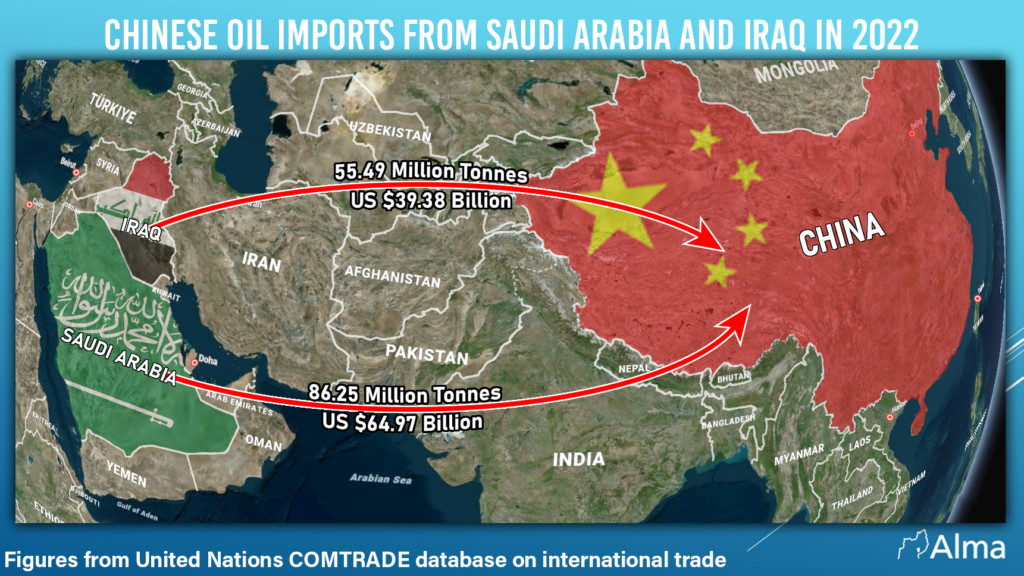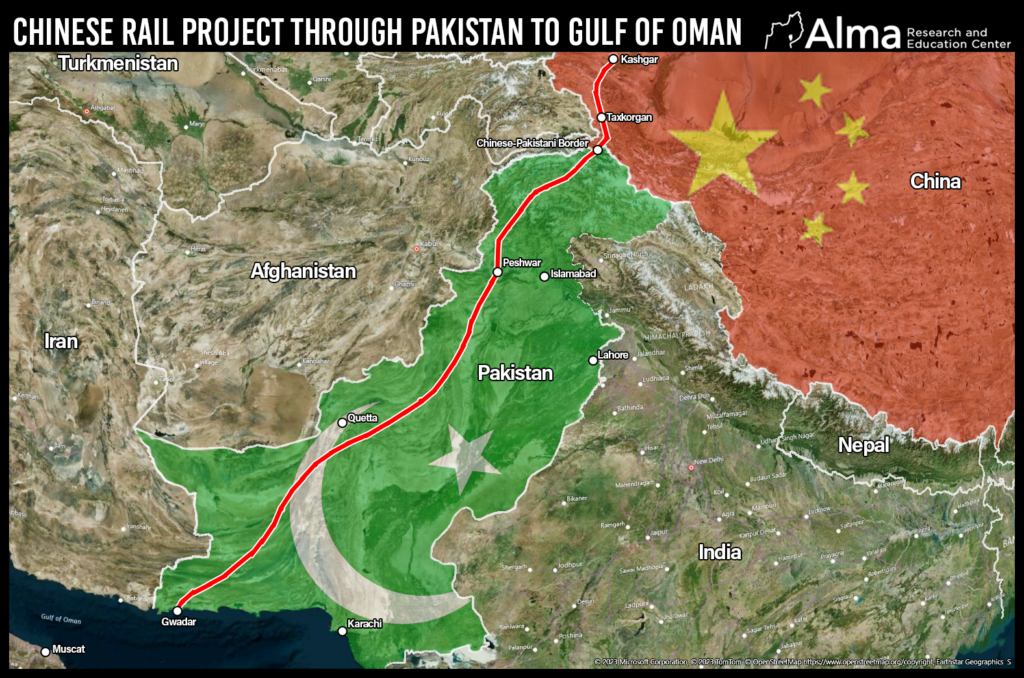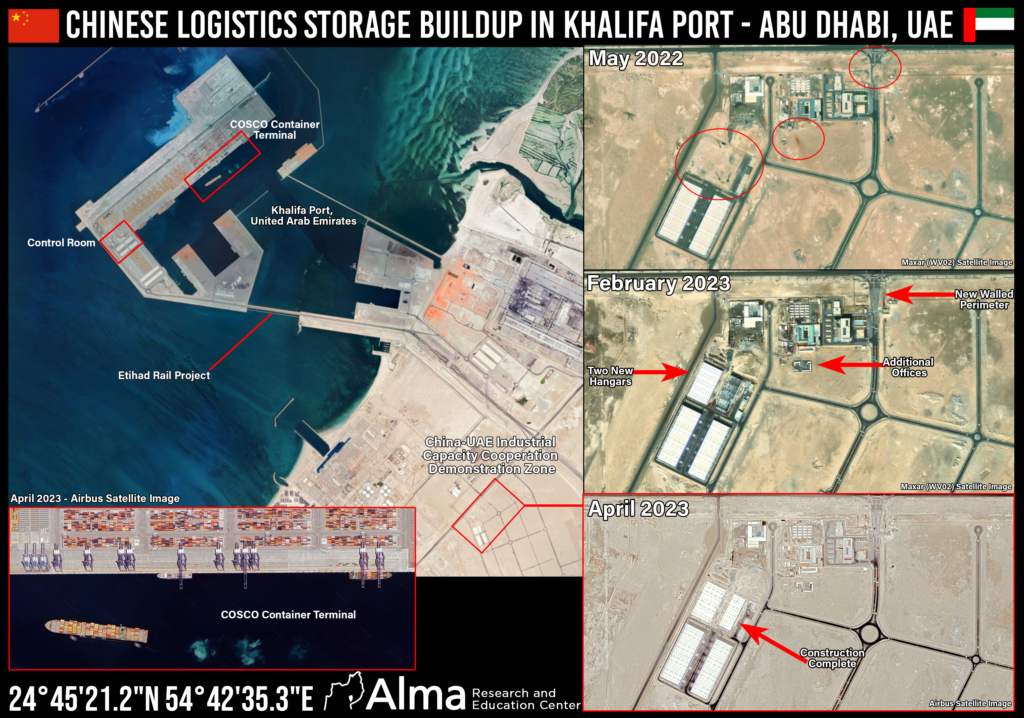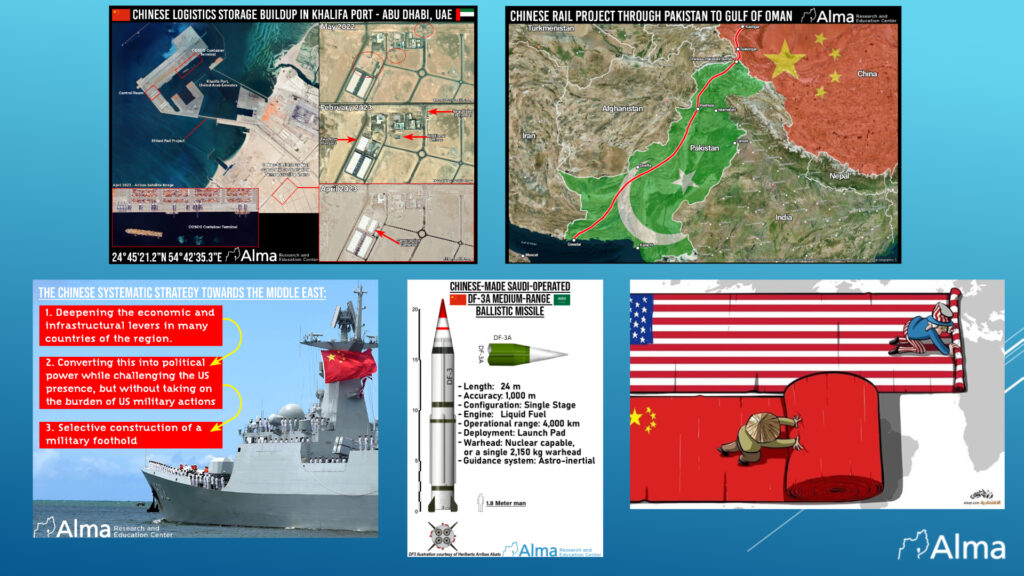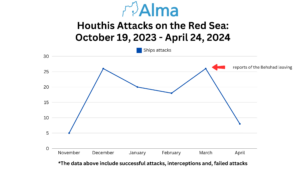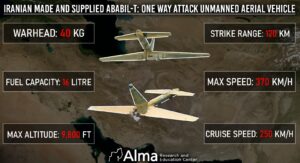Executive Summary
In recent years, and even more so in recent months, China has been accelerating a regional process in the Middle East designed to convert its economic influence into political and possibly military power. There are indications that Beijing is engaged in a process designed to leverage its economic and political strengths to establish a certain military presence in the region as part of a systematic plan to challenge the United States’ position as the regional alliance system’s preeminent superpower.
China is accomplishing all of this without having to assume the American military burden in the region and with few actual risks.
The fact that the United States has attained energy independence (though it is not immune to global energy market influence) and is no longer dependent on Middle Eastern oil imports, whereas China is heavily reliant on such imports, is also a factor in China’s involvement in the region. In the meantime, Iran has established an alternative economy that allows it to export energy to China while circumventing sanctions against it.
Sunni Arab countries’ fear of America’s lack of commitment to their security and the US-led regional agenda drives them into Chinese arms as part of their desire for a de-escalation mechanism with Iran, mediated by China.
China’s expanding presence in the Middle East poses a current and especially future challenge to America’s position as a dominating force in the region.
The purpose of the report is to present and analyze the regional situation and China’s strategy in the Middle East. The report explores the process of establishing Chinese influence in a number of case studies: Saudi Arabia, Iran, the United Arab Emirates, Egypt, Syria, Iraq, Lebanon, and finally Israel. The report also examines American responses to Chinese activity in the region.
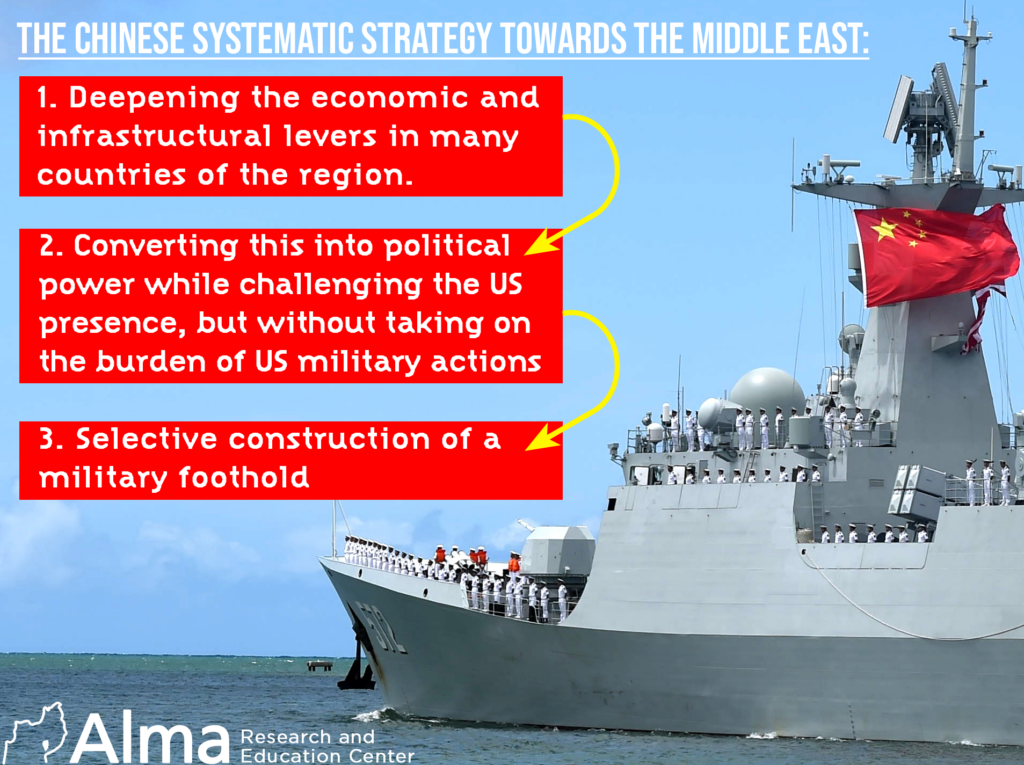
In terms of political influence in the region, China is posing a growing challenge to the United States, particularly among pragmatic Sunni-Arab nations, which were previously firmly in the pro-American camp.
These countries (especially Saudi Arabia and the United Arab Emirates), driven by tensions between them and Washington, have increased cooperation with China. These tensions reflect their growing concern about the American commitment to their security.
The Wall Street Journal recently reported (August 25, 2023) that Saudi Arabia is exploring a Chinese proposal to construct a nuclear power plant. This could be a move to put pressure on the US to adhere to Saudi proposals for receiving, from the US a civilian nuclear program, as part of ongoing US-Saudi-Israeli negotiations aimed at establishing a three-way deal that would include normalization between Riyadh and Jerusalem. Saudi Arabia’s objective is to build a complete nuclear fuel cycle in collaboration with the US, but if the US refuses, the Saudis will look to China for at least receiving nuclear power plants. While that’s not the same thing as a full fuel cycle, it still acts as leverage against the US.
Cooperation with China serves as leverage against the US, encouraging Washington to invest more in the regional security architecture that it leads. If the US does not act, the Chinese option allows Sunni states to hedge risks while enhancing the status of China as a rising alternative force.
These trends have significant consequences for Israel:
At the strategic-regional level, Israel’s ability to project force and deterrence is heavily influenced by America’s position in the region. As the standing of the United States rises or declines, so will the status of Washington’s closest ally in the region, Israel.
In recent months, we have seen an increase in the number of statements made by senior officials and leaders of the radical Shi’ite axis on this subject.
In April 2023, for example, an IRGC spokesperson stated that “the United States is not in a position in the region to support Israel.”[i]
Furthermore, Israel will need to develop an updated policy that outlines courses of action and responses to China’s moves in the region. Because the American alliance is so critical for Israel’s military capabilities and geopolitical position, any Israeli move toward China should be conducted with the goal of preserving the alliance with the US in mind as the primary and leading consideration before any other.
This is founded on the understanding that, in the new era of superpower competition, Israel does not have the ability to adopt a stance of sitting on the fence. The price Israel would pay for such a position is prohibitively expensive. Israel must explicitly express its support for the US-led alliance of Western democracies.
As such, Israel has limited options for maintaining a dialogue channel and commercial connections with China. At the same time, Israel has an excellent opportunity to expand military cooperation with CENTCOM (US Army Central Command), which it joined in 2021, while also aiming to “re-recruit” pragmatic Arab governments to the pro-American camp and assist the US in returning them to their traditional course.
[i] Iran International Newsroom, “Iran’s Guards Say US Too Weak In Region To Militarily Support Israel,” Iran International, April 15, 2023, https://www.iranintl.com/en/202304153125

